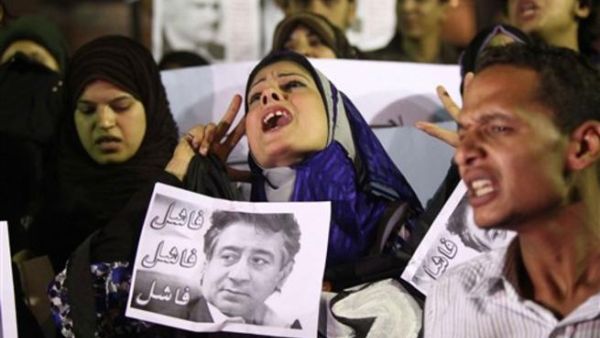The ruling party's overwhelming victory in the first phase of Egypt's parliamentary elections came as a surprise to many analysts, who were expecting the opposition, including the banned Muslim Brotherhood, to grab more seats.
The near-complete absence of the opposition from parliament carries negative ramifications on the country's political life, analysts warn.
"The results were surprising to the opposition, to the Muslim Brotherhood and to many analysts," said Hafez Abu Sa'eda, writer and head of the Egyptian committee for human rights.
"They [results] were not expected," he told Gulf News. Many were expecting, he continued, that the opposition, including the banned group, will get about 70 seats.
According to the official results, the ruling National Democratic Party won 217 seats, while the opposition won nearly 13 seats in the 508-member parliament. The Brotherhood failed to make any gains.
Sunday's run-off will decide the winners in the remaining 280 seats. President Hosni Mubarak will nominate another 10 members at a later stage.
Allegation
Prior to the official announcement of the final results on Wednesday morning, prominent columnist Hassan Nafa' wrote in an article published in the independent Al Masri Al Yaum newspaper that ruling party won more than two-thirds of the seats. This means one of two options.
"Either that the party is so giant that it will be impossible to beat it in any elections... and this is an unbelievable phenomenon, or that the ruling party has practised as usual a vast fraud."
Egyptian opposition and local monitors have said the elections were marred by irregularities, including vote fraud. The government, meanwhile, insists that the election was "clean and exemplary".
Apart from accusing the ruling party of ballot-rigging, the Muslim Brotherhood, which gained almost 20 per cent of the parliamentary seats in 2005 elections, said it was considering pulling out of the race.
Mohammad Badie, head of the Brotherhood, was quoted as saying at a press conference on Tuesday that the votes for the group increased by 35 per cent over the 2005 elections. Yet none of the candidates won.
However, many analysts doubted the group's withdrawal from the race.
"It will be difficult to withdraw now," Abu Sa'eda said. It will be difficult to convince the 26 candidates remaining in the second phase, to pull out, especially that they have a 50 per cent chance of winning.
"The idea of having even one representative of a group that is being described as illegal in the parliament is something very very, very important for them," Abu Sa'eda noted.
Analysts believe the total absence of the opposition from the parliament until the run-off next week, has many negative ramifications on the country's polity.
Increased scepticism
"It will transfer the political life from under the dome of the parliament to the street," Abu Se'da said.
"It will also reinforce the people's [earlier] perception that it is useless to participate in the election and it will increase the scepticism in the reforms intentions," he added.
Nearly 35 per cent of Egypt's 40 million voters cast their ballots, according to the Higher Election Committee








